Oyewo Oyenike Noimot is a Nigerian medical doctor with a speciality in obstetrics and gynaecology, who graduated and recently became a consultant in Belarus. However, her story that made the news headlines was her struggle of having a child in 200level and still graduating to become a consultant in Europe. Thence, our medical mirror correspondent met up with her to get all sides to her story, share her experiences and also celebrate her wins, along sides her struggles…
Below are excerpts from her interview
Q: What inspired you to study Medicine and why was Europe your place of choice for your course of study?
A lot of factors influenced me into becoming a doctor, however the most prominent of them all was my mum. Owing to the fact that, she is the type of woman who is always ready to help people without expecting anything in return. She is a community nurse and midwife in Bariga, who has been serving the people for over 20 years. So, yes! she’s my number one motivation. On the location of study, it wasn’t really by choice. It was suggested by my travel agent as “cheap, affordable and a safe study environment”, which is true. We actually heard about Belarus first from him.
Q: Being a black from a third world country like Nigeria, how was enrolling and schooling in Europe like? What were the pros and cons?
Enrolling was not much of a problem, the main problem was blending in. The country is NOT an English speaking country and I was not properly informed about the language barrier. We had very little knowledge of the place as its not a very popular country. Also, students are not allowed to work, and for someone like me, it was a very big deal because we thought I would be able to get a part time job – to support myself and also support my parents in paying my tuition.
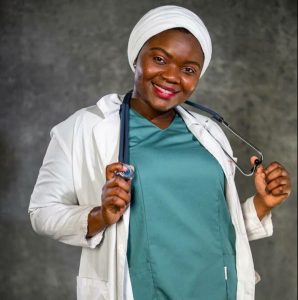
Q: Hmmmm… The news that rocked the social media some months back was “despite having a baby in 200L, Nigerian medical doctor became an O and G consultant in Belarus, Europe”… can you give us the story behind this?
Yes, ofcourse. I am very grateful to God for this moment because I speak severally about it and it’s all coming together. It however took a lot of work, pain and sacrifice. I came to Belarus in 2012 and some random guy took money from my friends and I for medical school (university) but we were never enrolled. So we got enrolled into a language school before I finally got admitted to study Medicine. Everything was okay until I got pregnant in 200L, it was such a challenging moment. The father of the child left the country, so I was alone but thanks to my friend – Ogechi Anaso (Dr) – and colleagues, I was able to scale through. I really didn’t plan for what happened, I was so unprepared, I had no experience whatsoever. My parents were disappointed in me at the time and all I just wanted to do was make them proud, because I knew where I was coming from. My family was not extremely rich, but we were comfortable and satisfied. Therefore, I was determined to finish school at all cost and also raise the child.
Q: Where there any help or support systems available to you or other black medical students in such fixated situations?
Not at all! So many students were deported for no reason. I was also at the edge of deportation for getting pregnant. I had to write a lot of letters to the dean, begged, cried. I literally visited the dean’s office every day until he got tired and he was like, “what kind of girl is this?” Eventually, I had to sign an undertaken that if my academics dropped because of the pregnancy, I would be withdrawn from school. So I had to attend all classes with no form exemption.
Q: From 2012 till now, what was the process to becoming a Belarus licensed consultant in Obstetrics and Gynaecology?
Honestly, it’s a lot to explain – stressful, ofcourse but convenient. In Belarus, after your final examination from medical school, you are allowed to decide what specialty you want. After which you will be trained in your chosen field for not less than a year (internship), and have your residency in the same field for about 2-3 years under strict supervision.
Q: So, in total, how long did your residency training take in comparison to residency here in Nigeria?
My residency took 2-3 years in total. The Nigerian system is totally different because to even get a residency placement to start with, is a big issue.
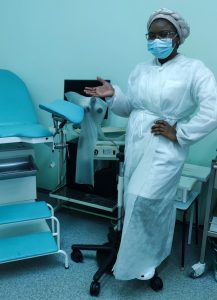
Q: Now as a consultant in an European country, how is practising in a different clime like in terms of patient-doctors relationship?
The weather or environment is not the most challenging thing, the most challenging thing is the language barrier – their official language here is Russian. You can hardly find people who speak English fluently. However, I blend in well into whatever community I find myself, so the relationship with my patients is okay and good. Although, some patients can be extremists, also hormones and all those contribute, but patience is the key (smiles).
Q: Looking back on your journey into medical school from home and abroad, if you could change anything, what would it be?
I would have loved to learn a lot of vocational handiwork growing up. Craft (handiwork) is very underrated, I had to learn craft and other vocations (such as sewing, cooking and hair dressing) all on YouTube after I arrived Belarus, due to unavailability of official jobs for foreigners like myself. This was because I had to do something to survive. Aside from this, I don’t think I would change anything.
Q: Are there any polices in the health sector home and abroad where you practice, that affect your work or you think could be worked on for better health outcomes?
At home, yes! So many things need to be discussed with our young girls. Especially topics like Sex education, Relationships with men and so on. I feel these should be included in their school syllabus and taken seriously. So many young folks are naive… so naive! I was naive as well. In contrast, Abroad, they seem to rely know how to handle themselves and Women are really taken care of. For example, women who have miscarriages get some days off work with psychological support and many more. However, in Nigeria, women and girls abused are all ignored except their case(s) trend on social media.
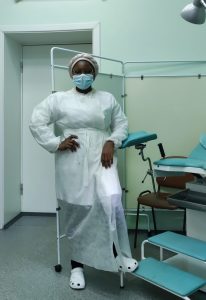
Q: Aside Medicine, in a world of innovation and diversity, what else do you do?
I am a self made entrepreneur (saying that feels good, lol). I’m also into travel consultancy, catering, hair styling and distribution of maternity wears. Back home in Nigeria, I also produce disinfectants, liquid soap with the help of my mum. So that’s it for now.
Q: What is your favourite quote in life?
If you don’t stand for something, you will fall for anything and “anything” is distracting!
Q: What is your most memorable moment or experience in medical training?
The first time I held a scalpel in the operating room.
Q: Also, what are your plans for now and in the near future? Do you plan to relocate or continue, to raise a family and career in Belarus?
I have plans but I like to move quietly, so I put everything in the hands of God.
Q: Nice. Would you then advice more blacks to explore medical training (including residency) in Belarus and other European countries?
In all honesty, yes I would advice them to, because it’s a very safe and reliable environment for growth. The system functions, however, the only issue is that the pay is not good enough – very low – but you will surely gain the medical experience. If you can cope with that for a while, then yes I recommend.
Q: Finally, any general advice to young people planning to trail on the path to international medical graduate?
Yes, go for it and be sure it’s what you want because it gets really challenging along the line. Being a foreigner “from Nigeria” alone, is a big deal. Personally, I am not where I want to be yet, but it’s a gradual process and I am working hard to get there some day with God on my side.
Hard work PAYS! Determination, Prayer and Patience are all you need to pull through.
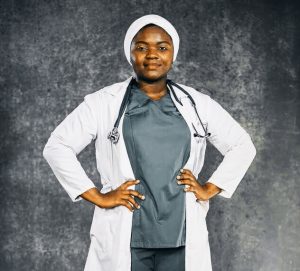

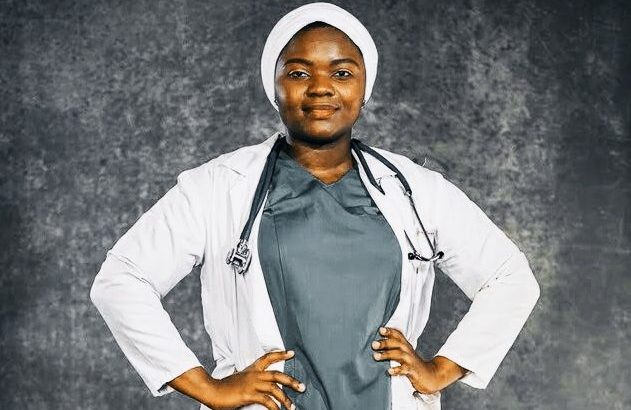

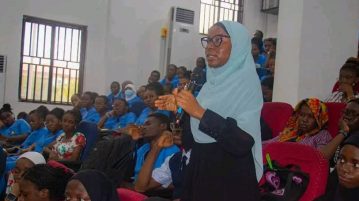

Discussion1 Comment
Go mama, you are my inspiration. God bless u for standing tall through it all. U are a winner, keep winning boo. ????????????????